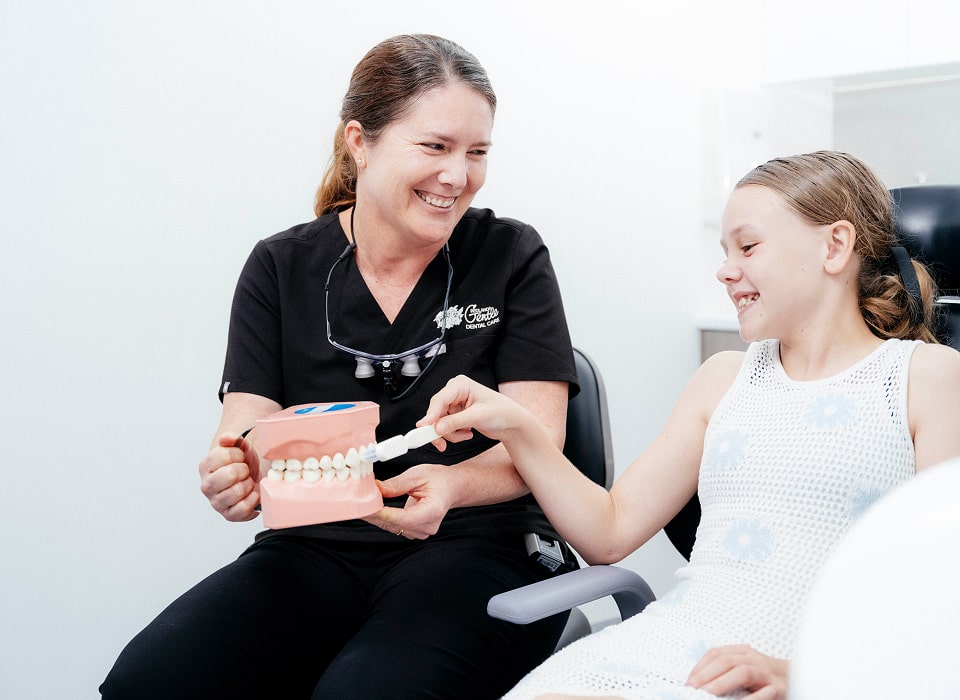Healthy Gums Start with Gentle and Comprehensive Gum Disease Treatment Designed for You
Why Choose Us
Choose Redlands Gentle Dental Care for Trusted and Quality Dental Care Services
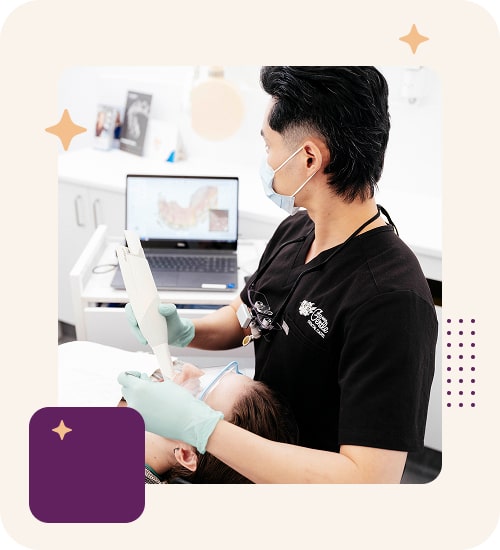
Experience Gentle, Personalised Dental Care
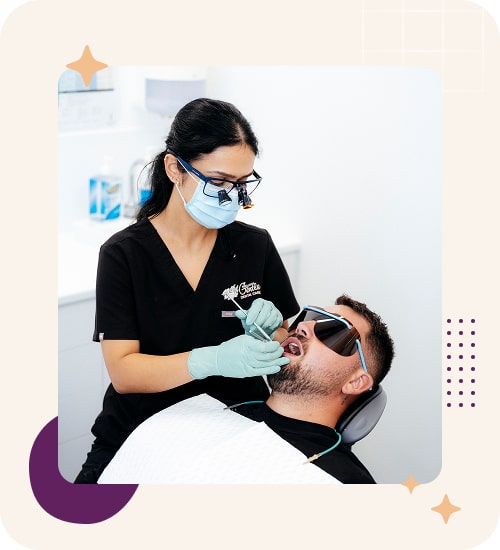
Meet Our Experienced and Empathetic Team
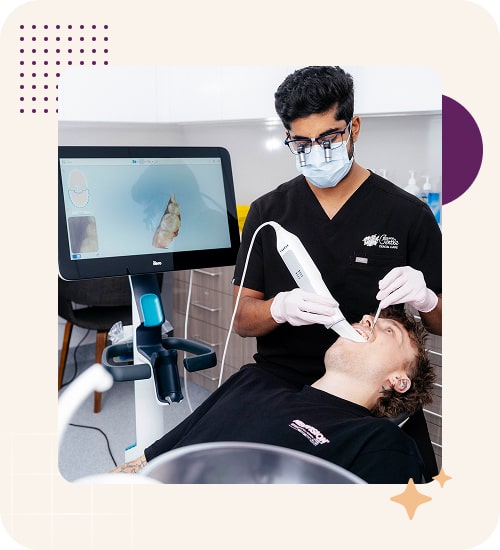
Enjoy Comprehensive Dental Services Under One Roof

Feel at Home in Our Family-Friendly Atmosphere

Benefit from Affordable and Transparent Pricing

Trusted Community Pillar with 40 Years of History
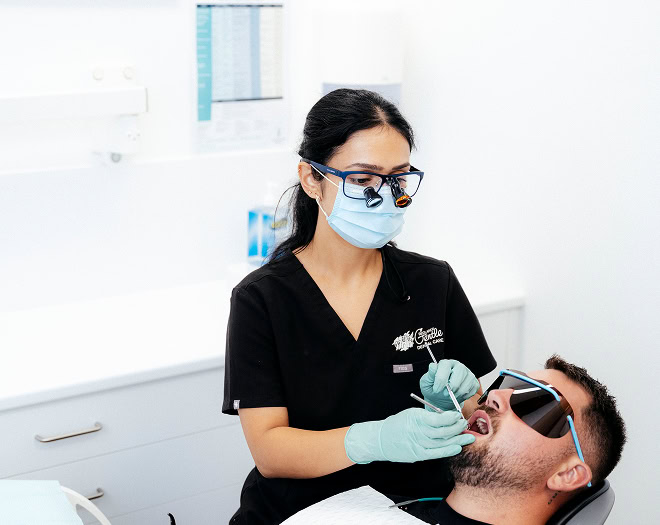
Alleviating Pain and Protecting Smiles Through Extensive
Gum Disease
Treatment Options
Who Should Consider Seeking Professional Gum Disease
Treatment Service?
Gum disease can affect anyone, but some people may be at higher risk and require prompt oral care. Seeking dental professional help can effectively address symptoms and prevent gum disease from progressing to more serious conditions.
- Patients experiencing symptoms like bleeding gums, swelling, or gum sensitivity should seek treatment to restore their oral health.
- Those with a family history of gum disease are more susceptible and may benefit from regular professional care.
- Smokers or patients with poor oral hygiene should prioritise treatment to protect their gums and overall oral health.
- People with medical conditions like diabetes are at increased risk and should seek professional care to maintain healthy gums.


Enjoy the Benefits of Healthier Gums
with Periodontal
Disease Treatment
Periodontal disease treatment not only restores gum health but also improves your overall oral health. By addressing gum problems early, you can avoid pain, protect your teeth, and maintain a healthier smile for years to come.
- Gum disease treatment reduces inflammation and bleeding, helping to strengthen and restore oral health while improving overall comfort and function.
- It stabilises the gums, protecting teeth from damage or loss that can occur due to advanced conditions over time.
- Professional care removes bacteria and plaque from deep in the gumline, promoting better oral hygiene and gum health.
- Healthy gums improve the condition of your teeth and reduce the risk of oral and general health complications.

Experience the Difference of Gentle Care with Us
How We Can Help
Learn How Gum Disease Treatment Can Address Your Dental Problem
Seeking Smile Improvement
Our Payment Options
Find What Works for Your Financial Needs With Our Dental Payment Options
Child Dental Benefits Schedule
Invest in your child's smile with the Child Dental Benefits Schedule (CDBS). This government program offers eligible families financial support for essential dental services, promoting good oral health habits from an early age.
The CDBS covers up to $1,095 over two years for basic dental care like check-ups, cleanings, and fillings for children aged zero to 17. Eligibility depends on Medicare status and specific government payments, making quality dental care more accessible to families.
Learn MoreDental Services for DVA Card Holders
Veterans deserve high-quality dental care, and the Department of Veterans' Affairs (DVA) program delivers just that. The program offers dental benefits that vary based on card type.
Gold Card holders receive comprehensive cover for clinically necessary treatments, from routine check-ups to advanced procedures. White Card holders are covered for dental care related to accepted service-related conditions or mental health needs. Our clinic proudly supports veterans by providing high-quality dental care to maintain their overall health.
Learn MoreHumm
Simplify your dental care payments with Humm, a flexible financing option that lets you smile now and pay later. This interest-free payment plan allows you to spread the cost of your dental treatments over time, making essential care more accessible.
Humm is available for various dental services, from routine check-ups to more complex procedures. With instant approval and the ability to manage your account online, Humm helps you prioritise your oral health without financial stress.
Learn MoreZip
We offer Zip to help patients manage treatment costs. With credit limits between $1,000 and $50,000, eligible patients can select flexible repayment terms from three to 60 months, making it easier to manage costs.
Zip is ideal for anyone needing dental care without upfront costs. The user-friendly app allows you to track payments easily, so you can stay on budget while prioritising your oral health.
Learn MoreSuperCare
With the help of SuperCare, eligible patients can release their superannuation funds early to access essential dental procedures. This option is suitable for families lacking sufficient health funds or available resources, covering services such as orthodontics, implants, and root canal therapies.
SuperCare's consultants guide you through the straightforward application process, simplifying what can often be complex. This service enables you to prioritise your family's oral health without the burden of upfront costs.
Learn MoreAfterPay
Experience the convenience of dental care with Afterpay, allowing you to receive treatments now and pay later in four easy instalments over six weeks. This payment option is available to anyone over 18, a practical choice for adults looking to enhance and maintain oral health.
With no interest charges when payments are made on time, Afterpay promotes responsible budgeting. Payments are automatically deducted from your linked debit or credit card for a smooth experience.
Learn MoreBupa Preferred Provider
Enjoy exclusive benefits and hassle-free claims when you choose our clinic, a Bupa Preferred Provider, for your dental health needs. Our patients can access a comprehensive range of services, including check-ups and major procedures, often at reduced out-of-pocket costs.
Members First Ultimate also offers 100% back on two dental check-ups and cleans every six months, making regular oral care more affordable. Our partnership with Bupa allows you to receive quality care while maximising your benefits.
Learn MoreHCF Preferred Provider
Experience affordable, high-quality dental care at Redlands Gentle Dental Care. As an HCF preferred provider, patients with eligible dental cover can access reduced out-of-pocket costs, no-gap services for selected treatments, and streamlined claims processing.
HCF members can take advantage of these benefits by choosing our clinic for their dental needs. Check your policy to understand covered treatments and annual limits, and let us help you achieve a healthier, brighter smile.
Learn Morenib Preferred Provider
Access professional dental care at our clinic, a trusted part of nib's First Choice network. As a nib Preferred Provider, we offer members the opportunity to receive quality dental care at agreed rates. This provides a transparent and straightforward experience for your dental needs.
Nib members benefit from reduced out-of-pocket costs and simplified claims processes at our clinic. To make the most of your cover, review your policy for applicable limits and service inclusions.
Learn MoreUnderstanding Gum Disease Treatment
Frequently Asked Questions
What are the common causes and risk factors for developing gum disease?
Gum disease is primarily caused by dental plaque—a sticky film of bacteria that forms on teeth. When not removed through proper tooth brushing and flossing, plaque hardens into tartar, irritating the gums and leading to inflammation. Several factors increase the risk of developing gum disease, including:
- Poor Oral Hygiene:
Inconsistent or improper brushing and flossing of teeth allow dental plaque and bacteria to accumulate. This increases the likelihood of developing oral diseases. - Smoking and Tobacco Use:
Smoking weakens the immune system, making it harder for your body to fight off gum infections. Tobacco use also reduces blood flow to the gums, hindering healing. - Hormonal Changes:
Hormonal fluctuations during pregnancy, puberty, menopause, or menstruation can make gums more sensitive and prone to inflammation. - Genetics:
A family history of oral health issues like gum disease may predispose you to develop it. Good oral hygiene habits are important since you are at a higher risk of developing periodontal disease. - Chronic Conditions:
Health conditions like diabetes and cardiovascular and systemic diseases can increase susceptibility to gum infections. - Stress:
High stress levels can weaken your immune system, reducing your body’s ability to fight bacterial infections in the gums. - Poor Nutrition:
A diet low in essential nutrients, such as vitamin C, can harm gum health. A sugar-rich diet also increases the risk of plaque buildup and inflammation. - Medications:
One of the risks of gum disease is associated with certain medications. Drugs causing dry mouth can reduce saliva production, which helps wash away bacteria. Other medicines may also cause enlargement of the gums, making them prone to plaque accumulation and inflammation.
By understanding the signs of gum disease, like red, swollen gums or bleeding during brushing, you can seek timely care. Early intervention can prevent further damage and maintain your dental health. Maintaining a consistent oral hygiene routine and regular dental check-ups are essential for gum disease prevention.
At Redlands Gentle Dental Care, we offer comprehensive gum disease treatment tailored to your needs. Our dedicated team applies advanced techniques to address plaque and tartar buildup, promoting gum health and preserving your smile. If you’re concerned about oral disease or notice early signs of gum disease, book an appointment with us today. We’ll discuss a personalised treatment plan tailored to your needs.
How do dentists address gum disease?
Dentists use a wide range of techniques to manage and address gum disease, depending on its severity. The goal of the treatment is to control the infection and reduce inflammation. It also aims to prevent further damage to the gums and supporting structures.
- Professional Cleaning:
For early-stage gum disease, such as gingivitis, professional teeth cleaning is often sufficient. Dentists remove plaque and tartar during routine dental cleanings, which helps to restore gum health. - Deep Scaling and Root Planing:
In cases of more advanced gum disease, dentists perform a deep cleaning procedure called root scaling and planing. This involves removing plaque and tartar from below the gum line through scaling. It also includes smoothing the tooth roots through root planing to help the gums reattach. - Antibacterial Treatments:
Dentists may apply antibacterial solutions or recommend medicated mouthwashes to reduce harmful bacteria in the mouth and control infection. - Surgical Treatment Options:
For severe gum disease, dental treatments like flap surgery or bone graft may be necessary. These surgical procedures aim to restore damaged gum tissue and prevent loosening of teeth.
At Redlands Gentle Dental Care, we are experienced in providing tailored treatment for periodontal disease. We utilise modern techniques and prioritise individual needs to improve oral health while reducing the risk of future complications. If you’re experiencing symptoms, schedule a consultation today at our dental clinic. We will explore the most suitable treatment options for gum disease.
How often should I visit the dentist if I have gum disease?
If you have gum disease, visiting the dentist more frequently is important. The usual six-month recommendation is for patients with normal gum conditions or mild gingivitis. For patients with severe gum disease, many dentists recommend visits and teeth cleanings every three months. This approach helps manage the dental condition effectively. These appointments allow your dentist to monitor your oral health and perform dental cleanings when necessary. These visits also give your dentist a chance to provide guidance on maintaining a consistent oral care routine.
Regular check-ups are crucial to gum disease treatment. They help control inflammation and prevent further damage. Routine dental visits also support gum disease prevention, reducing the risk of progression to more advanced stages. Your dentist will recommend a treatment schedule tailored to your specific needs.
Does saltwater rinse help gum disease?
A saltwater rinse can help reduce some of the symptoms of gum disease, such as swelling and discomfort. It has natural antibacterial properties that help reduce bacteria in the mouth and promote healing by soothing irritated gum tissue. However, while a saltwater rinse can provide temporary relief, it is not a substitute for professional treatment for gum disease.
To address gum disease effectively, seek extra care from a dentist who can provide the most suitable treatment options. These may include teeth cleanings and other procedures to manage the condition. Saltwater rinses can complement your oral care routine. However, they should be used alongside professional advice and treatment for gum disease.
Can gum disease improve without dental intervention?
In its earliest stage, known as gingivitis, gum disease may improve with diligent oral hygiene practices. These include brushing three times a day, flossing daily, and using an antibacterial mouthwash. These steps can help reduce plaque and bacteria, which are the main culprits behind gum disease. However, once it progresses to mild periodontitis, it usually requires professional intervention.
Dentists provide essential treatment for gum disease to address the advanced stages of the condition. This includes removing tartar buildup through deep cleaning procedures, addressing infected areas, and guiding patients on maintaining better oral health. While good dental care at home is important, professional treatment for periodontal disease is crucial for addressing more severe cases.
When is it too late to reverse gum disease?
Gum disease, such as gingivitis, can often be reversed in its earliest stages with proper oral hygiene and dental care. However, as the condition progresses to periodontitis, the effects become more challenging to manage, especially in severe cases. While advanced gum disease cannot be reversed, it can still be managed effectively to protect oral health. Here are the common stages of gum disease:
- Early Stages (Gingivitis):
Symptoms like red, swollen gums or bleeding while using a soft toothbrush are common signs of gum disease. These issues can often improve with consistent oral hygiene and professional teeth cleanings. - Moderate Periodontitis:
Damage to the gums and supporting structures becomes more significant as receding gums are observed. In such cases, deep teeth cleanings and ongoing care are required to prevent further progression. - Severe Periodontitis:
Advanced cases involve bone loss and loose teeth. While this stage cannot be reversed, tailored care can stabilise the condition and prevent further complications.
At Redlands Gentle Dental Care, we focus on gum disease prevention and management at all stages. Our team of experienced dentists creates treatment plans tailored to your needs. We help you maintain your oral health and protect your smile. If you’re concerned about your gums, contact us to discuss your options for long-term care.
Will I eventually lose my teeth due to periodontal disease?
If not addressed, periodontal disease can lead to tooth loss over time. This occurs because the condition affects the gums and bones that support the teeth. As the condition advances through different stages of periodontitis, deep pockets form around the teeth. This indicates damage to the gum tissue and underlying bone, leading to loosening teeth, which may require tooth extraction in severe cases.
Recognising symptoms of periodontitis, such as swelling, bleeding, or receding gums, is critical for early intervention. These signs of gum disease suggest the condition is progressing and requires professional care to manage and stabilise oral health.
If you suspect periodontal disease or notice changes in your gum health, visit Redlands Gentle Dental Care. We offer comprehensive assessments and personalised care to help manage your condition. Our team of skilled dentists is dedicated to protecting your teeth at all stages of gum disease. Contact us to learn more about your treatment for periodontal disease.
How long does it take for gum disease to heal?
The time it takes for gum disease to heal depends on its severity and the treatment approach. For mild cases like gingivitis, improvements can often be seen within a week or two weeks after professional dental cleaning. Consistent oral hygiene practices at home, including regular brushing and flossing, are vital to achieving this. In these cases, the gums may return to a healthier state relatively quickly with proper care.
The healing process can take longer for more advanced gum disease, like periodontitis. Treatment may involve multiple dental visits for procedures like deep cleanings (scaling and root planing) and maintenance appointments. Although the effects of advanced gum disease cannot always be fully reversed, appropriate maintenance can stabilise the condition. Over time, this care can also improve gum health.
